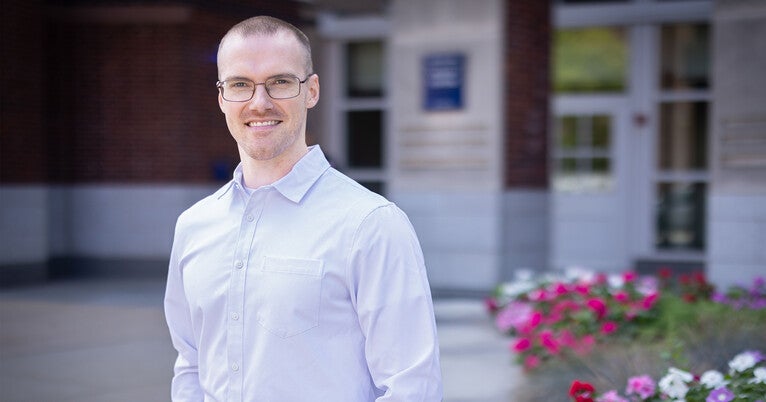
From an early age, Kent Langston was captivated by the intricacies of the human body. His fascination was evident in his childhood Christmases, where textbooks on anatomy and physiology were the gifts he cherished most. Today, Langston is an assistant professor of pathology at Yale School of Medicine, where he continues to explore the dynamic relationship between exercise and the immune system.
“I had a couple of Christmases where all the gifts I got were textbooks on anatomy and physiology,” Langston recalled. His early curiosity evolved into a professional passion, particularly as he became intrigued by how exercise and nutrition could alter the human body. “The more I learned about exercise biology in high school, the more I realized I wanted to make it an area of focus in the future,” he said.
Langston’s journey has led him to Yale, where he is poised to advance his research on the benefits of exercise for the immune system, especially as people age. “One of the beautiful things about science is it allows you to be a nerd,” he expressed with enthusiasm. “I’m happy that I get to study stuff that fascinates me.”
Exploring the Intersection of Exercise and Immunity
In the latest edition of Office Hours, a Q&A series introducing new Yale faculty members, Langston discusses the critical role of exercise in maintaining a robust immune system as we age. His research focuses on the interplay between inflammation, exercise, and muscle health during aging.
“In the context of aging, people that exercise regularly are more resilient. They typically have higher muscle mass, their muscles have more ‘furnaces’ called mitochondria [which generate energy], and they’re more resistant to fatigue,” Langston explained.
According to Langston, regular exercise can delay the “physical cliff” associated with aging, where a decline in muscle mass and quality leads to a rapid deterioration in quality of life and physical independence. Exercise not only bolsters muscle health but also rejuvenates the immune system, making it appear more youthful and responsive.
Types of Exercise and Their Impact
Langston’s research emphasizes the importance of aerobic exercises like running, which are commonly practiced by many. “The intensity matters a lot,” he noted. “Exercising a few days per week for 30 minutes to an hour is better than exercising once or twice per week for three or four hours.”
He advocates for consistency over intensity, encouraging individuals to exercise as frequently as possible at a reasonable intensity. “Don’t worry about what time of day it is as long as you can be consistent,” he advised.
A Personal Approach to Fitness
Langston practices what he preaches, engaging in a variety of exercises to maintain his own health. “I try to do a mixture of different things,” he said, highlighting the importance of resistance exercises in preserving muscle mass and strength, which naturally decline with age.
His routine includes resistance training three to four times a week, complemented by aerobic activities such as running and cycling. This balanced approach reflects his holistic understanding of exercise’s benefits.
Why Yale? A Perfect Fit for Langston’s Research
Langston’s decision to join Yale was influenced by the institution’s renowned immunobiology department and its strong emphasis on translational science. “Yale is the perfect place for establishing my lab,” he said, expressing excitement about collaborating with faculty in both the immunobiology and pathology departments.
He emphasized the collegial atmosphere at Yale, which stood out during his interview process. “I felt so immediately welcomed when I came to interview at Yale that it was kind of a no brainer,” Langston shared.
Life Beyond the Lab
Outside of his professional pursuits, Langston enjoys spending time with his fiancée, Katy, exploring the local area, and visiting coffee shops and bookstores. He has a particular fondness for Atticus Market in New Haven.
Langston also indulges in reading ancient philosophy, a hobby that complements his scientific endeavors. “People lose sight of the fact that science, and academia in general, is a question-based discipline,” he reflected. “Philosophy can reframe your way of thinking and make sure you’re thinking about what questions are important to answer.”
As Langston settles into his role at Yale, his work promises to shed new light on the vital connections between exercise, aging, and immunity, offering insights that could enhance the quality of life for many.







